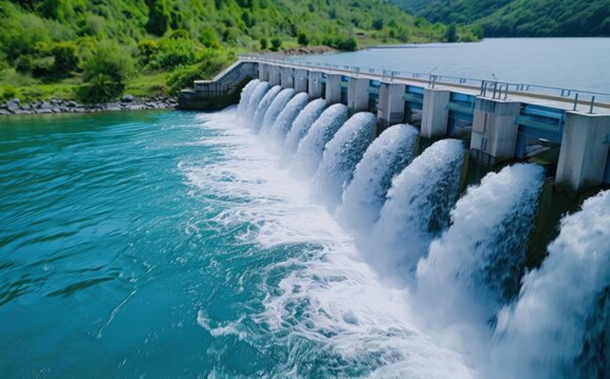Effects of Site-Dependent Errors on the Accuracy of C/A Code DGPS Positioning
Downloads
Several differential GPS processing techniques can be used; for instance, single differencing and double differencing, which are popular in practice. Irrespective of the DGPS processing technique used, the ultimate accuracy of the user-location depends on the existence of non-common or site-dependent errors, which occur at the points of observation and the reference. Of these, the most common and dominant site-dependent error is the multipath. Therefore, this research evaluates the effects of site-dependent errors on C/A code differential GPS correction accuracies by providing special emphasis on the multipath error. For the analyses, four segments of about 24-hour continuous static C/A code based DGPS observations were conducted at three precisely known ground stations and four different multipath environments were introduced by placing three different types of artificial signal reflectors at one of the observation stations. By using the known GPS receiver-reflector configuration, pseudo-range multipath was precisely calculated for each observation segment. C/A code DGPS positioning accuracies before and after multipath mitigation were presented by evaluating the effect of the most dominant site-dependent error, i.e., multipath, on C/A code DGPS correction accuracies.
Downloads
[2] Azarbad, Milad R., and M. R. Mosavi. "A new method to mitigate multipath error in single-frequency GPS receiver with wavelet transform.” GPS solutions 18, no. 2 (2014): 189-198. https://doi.org/10.1007/s10291-013-0320-1.
[3] Baroni, Leandro, and Hélio Koiti Kuga. "Analysis of navigational algorithms for a real time differential GPS system." In 18th International Congress of Mechanical Engineering, Sao Paulo: ABCM. 2005.
[4] Dammalage, Thilantha L., Panithan Srinuandee, Lal Samarakoon, Junichi Susaki, and Teerasak Srisahakit. "Potential accuracy and practical benefits of NTRIP protocol over conventional RTK and DGPS observation methods." Map Asia 29 (2006).
[5] Dammalage, T. L., C. Satirapod, S. Kibe, and C. Ogaja. "C/A Code Multipath Mitigation at GPS Base Stations for Improved DGPS Corrections Using Wavelets.” Survey Review 42, no. 317 (July 2010): 240–255. doi:10.1179/003962610x12572516251925.
[6] Dammalage, Thilantha, D. N. De Silva, and Chalermchon Satirapod. "Performance Analysis of GPS Aided Geo Augmented Navigation (GAGAN) Over Sri Lanka.” Engineering Journal 21, no. 5 (September 29, 2017): 305–314. doi:10.4186/ej.2017.21.5.305.
[7] Fan, K.K, and X.L. Ding. "Estimation of GPS Carrier Phase Multipath Signals Based on Site Environment.” Journal of Global Positioning Systems 5, no. 1&2 (December 31, 2006): 22–28. doi:10.5081/jgps.5.1.22.
[8] Farrell, J., and T. Givargis. "Differential GPS Reference Station Algorithm-Design and Analysis.” IEEE Transactions on Control Systems Technology 8, no. 3 (May 2000): 519–531. doi:10.1109/87.845882.
[9] Hsu, Li-Ta. "GNSS Multipath Detection Using a Machine Learning Approach.” 2017 IEEE 20th International Conference on Intelligent Transportation Systems (ITSC) (October 2017). doi:10.1109/itsc.2017.8317700.
[10] Leick, Alfred. "GPS Satellite Surveying, A Wiley-Interscience Publication.” United States of America (1990).
[11] Li, Yue, Ian Sharp, Mark Hedley, Phil Ho, and Y. Guo. "Single- and Double-Difference Algorithms for Position and Time-Delay Calibration of Transducer-Elements in a Sparse Array.” IEEE Transactions on Ultrasonics, Ferroelectrics and Frequency Control 54, no. 6 (June 2007): 1188–1198. doi:10.1109/tuffc.2007.372.
[12] Li, Bofeng, Zhetao Zhang, Yunzhong Shen, and Ling Yang. "A Procedure for the Significance Testing of Unmodeled Errors in GNSS Observations.” Journal of Geodesy 92, no. 10 (January 27, 2018): 1171–1186. doi:10.1007/s00190-018-1111-9.
[13] Misra, Pratap, and Per Enge. "Global Positioning System: signals, measurements and performance second edition." Massachusetts: Ganga-Jamuna Press (2006).
[14] Pirsiavash A, Broumandan A, Lachapelle G, O'Keefe K. GNSS Code Multipath Mitigation by Cascading Measurement Monitoring Techniques. Sensors (Basel, Switzerland). 2018;18(6):1967. doi:10.3390/s18061967.
[15] Satirapod, Chalermchon, Clement Ogaja, Jinling Wang, and Chris Rizos. "An approach to GPS analysis incorporating wavelet decomposition." Artificial Satellites 36, no. 2 (2001): 27-35.
[16] Satirapod, Chalermchon, and Chris Rizos. "Multipath mitigation by wavelet analysis for GPS base station applications.” Survey Review 38, no. 295 (January 2005): 2–10. doi:10.1179/sre.2005.38.295.2.
[17] Tokura H, Kubo N. Efficient Satellite Selection Method for Instantaneous RTK-GNSS in Challenging Environments. Transactions of the Japan Society for Aeronautical and Space Sciences. 2017;60(4):221-9.
[18] Axelrad, P., C.J. Comp, and P.F. Macdoran. "SNR-Based Multipath Error Correction for GPS Differential Phase.” IEEE Transactions on Aerospace and Electronic Systems 32, no. 2 (April 1996): 650–660. doi:10.1109/7.489508.
- Authors retain all copyrights. It is noticeable that authors will not be forced to sign any copyright transfer agreements.
- This work (including HTML and PDF Files) is licensed under a Creative Commons Attribution 4.0 International License.![]()















